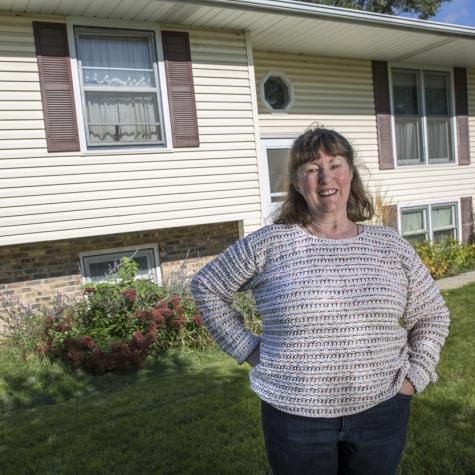How long does it take to foreclose on a home in Pennsylvania?
Foreclosure is a complicated multistep process that allows mortgage lenders to repossess homes from homeowners who have missed payments on their mortgage loan. Pennsylvania’s foreclosure process can take six to nine months or longer.
What is the best way to avoid foreclosure in Pennsylvania?
The first step for any homeowner facing foreclosure or eviction should be to contact a HUD-approved housing counselor to better understand your options. Housing counselors are typically free and offered by a local nonprofit. BlueHub SUN may also be an option to prevent foreclosure and eviction. Find out if you qualify.
What are the steps of the foreclosure process in Pennsylvania?
Understanding the steps involved in the foreclosure process can help homeowners better navigate this difficult situation. Below is a summary of the foreclosure and eviction processes in Pennsylvania. However, it is important to remember that laws can change and how courts and agencies interpret and apply them can also change. Some rules can even vary within a state.
- Pre-Foreclosure Notice:
- If a homeowner begins to miss mortgage payments, the lender can start the foreclosure process. The foreclosure process starts when the mortgage lender provides the homeowner with a written “Notice of Intent to Foreclose.” The notice must include the nature of the default, such as the homeowner’s missed payments, and the total amount they owe to the lender. Once they have received the notice, the homeowner will have 30-days to catch up on these payments and pay back the total amount owed. The notice should also outline homeowner rights and available assistance to help prevent foreclosure (#2).
- Homeowners Emergency Mortgage Assistance Program (HEMAP):
- The lender must notify the homeowner, within the “Notice of Intent to Foreclose,” of their right to apply to the Pennsylvania Finance Housing Agency under the Homeowners Emergency Mortgage Assistance Program (HEMAP). The Program supplies loans of up to $50,000 to help homeowners cure their defaults and catch up on their payments.
- Summons and Complaint:
- If the homeowner fails to cure the default or catch up on their payments, the next step in the foreclosure process is for the lender to file a foreclosure lawsuit in the Court of Common Pleas in the county the property is located. In Pennsylvania, foreclosures are judicial, meaning they are handled through the court system, and a judge or jury will deliberate on the case. The lawsuit the lender must file asks the court to issue an “order,” which allows a foreclosure sale to occur. The lender must give notice of the foreclosure lawsuit to the homeowner by “serving” them with a Summons and Complaint. The complaint states the details of the default and seeks permission to foreclose on the property.
- Service of Complaint: The lender must hand deliver the complaint to the homeowner or to another competent adult at the property of the homeowner.
- If the homeowner fails to cure the default or catch up on their payments, the next step in the foreclosure process is for the lender to file a foreclosure lawsuit in the Court of Common Pleas in the county the property is located. In Pennsylvania, foreclosures are judicial, meaning they are handled through the court system, and a judge or jury will deliberate on the case. The lawsuit the lender must file asks the court to issue an “order,” which allows a foreclosure sale to occur. The lender must give notice of the foreclosure lawsuit to the homeowner by “serving” them with a Summons and Complaint. The complaint states the details of the default and seeks permission to foreclose on the property.
- Answering the Complaint:
- The homeowner typically has 20-days to respond to the complaint and provide an answer. An answer is a formal response to the allegations in the complaint. The answer should address each allegation made by the lender in the foreclosure complaint. It can include affirmative defenses, which are legal reasons why the foreclosure should not proceed. To file the answer with the court, the homeowner or their attorney will need to complete the necessary paperwork and submit it to the appropriate court clerk. The court will provide instructions on where and how to file the answer. In addition to filing the answer with the court, a copy of the answer is should be mailed to the lender's attorney.
- Default Judgment:
- If the homeowner does not file an answer within 20 days, the lender can receive a “default judgment” from the judge. A default judgment automatically allows the lender to move ahead with the foreclosure sale since the homeowner has not provided any arguments against it. The homeowner will be given at least 10 days notice before the default is entered.
- Summary Judgment:
- If a homeowner files an answer to contest the foreclosure, the lender can request a “summary judgment,” which asks the court if the lender can continue with foreclosure without going to trial. A lender requests a summary judgment when they believe the homeowner’s answer does not raise any valid issues or defenses to the facts the lender presented.
- Foreclosure Proceeding:
- If no summary judgment is granted to the lender, the foreclosure lawsuit will go to trial, and the homeowner can defend themselves in the same court where the complaint was filled. If, during the trial, the court grants the foreclosure in favor of the lender, the judge will order that the property be sold at a foreclosure sale.
- In Preparation for the Sheriff’s Sale (Foreclosure Sale):
- A notice of the sheriff's sale must be posted at the property for 30 days before the sale, served to the borrower 30 days before the sale, and published in the local newspaper once a week for three weeks.
- Sheriff's Sale:
- At the date of sale, the property is sold at a public auction where the highest bidder becomes the new owner. If the lender is owed more than the property is sold for, they can receive a “deficiency judgment” against the borrower (see #9).
- Confirmation of Sale:
- In Pennsylvania, the homeowner has no right to redemption after the sale is complete, meaning they have no opportunity to repurchase their property after the foreclosure sale. Therefore, the next step in the process is for the court to proceed with “confirmation,” as it is required that the court confirms the sale of the property. The confirmation process requires the new owner to file a petition requesting confirmation in the Court of Common Pleas where the foreclosure lawsuit was filed. Once the court confirms the sale, the new owner is granted a deed to the property.
- Deficiency Judgment:
- A “deficiency” is the difference between the sale price at the foreclosure sale and the total amount the former homeowner owes to the lender. If the amount that the property sells for is greater than the amounts owed against the property, there is no deficiency. However, if the amount the property sells for is less than the amount owed to the foreclosing lender, the lender can attempt to collect this amount from the former homeowner by filing a “deficiency action" lawsuit within 6 months after the signing and delivery of the sheriff’s deed to the property. During this lawsuit, the court will determine the amount of the deficiency, if any, and the former homeowner will have an opportunity to defend against the claim.
- Since deficiency judgments can have significant financial implications, if a homeowner is facing a potential deficiency judgment, it is advisable to seek legal counsel from a qualified attorney with experience in real estate and foreclosure matters. The deficiency judgment is sought to recover the remaining balance on the mortgage loan after the foreclosure sale, and it is specific to the lender or lien holder who held the mortgage on the foreclosed property. Other lien holders or creditors who may have liens on the property but were not part of the foreclosure lawsuit typically cannot seek a deficiency judgment against the homeowner.
- Example: The total amount you owe on your mortgage loan, including outstanding principal, interest, fees, and costs, is $300,000. If your home sells for $200,000 at the foreclosure sale, the deficiency is $100,000.
- A “deficiency” is the difference between the sale price at the foreclosure sale and the total amount the former homeowner owes to the lender. If the amount that the property sells for is greater than the amounts owed against the property, there is no deficiency. However, if the amount the property sells for is less than the amount owed to the foreclosing lender, the lender can attempt to collect this amount from the former homeowner by filing a “deficiency action" lawsuit within 6 months after the signing and delivery of the sheriff’s deed to the property. During this lawsuit, the court will determine the amount of the deficiency, if any, and the former homeowner will have an opportunity to defend against the claim.
- Notice to Quit:
- After the foreclosure sale is confirmed, the new owner (the highest bidder at the sheriff’s sale) must serve a "Notice to Quit" on the former homeowner. This notice informs the former homeowner that they must vacate the property within a specific period (usually 10 days) or face eviction.
- Complaint in Ejectment:
- If the former homeowner does not vacate the property after the sheriff’s sale, the new homeowner can file a complaint in ejectment in the Court of Common Pleas in the county where the property is located. The complaint states the new owner’s claim to the property, lists the former homeowner of the property as the defendant, and requests the court’s assistance in evicting the former homeowner.
- Service of Ejectment Complaint:
- The ejectment complaint must be served to the former homeowner (defendant) in the same manner as the foreclosure action, meaning by hand delivery.
- Answering an Ejectment Complaint:
- The former homeowner (defendant) will respond to the ejectment complaint in the same manner they responded to the foreclosure complaint. Therefore, the former homeowner has 20 days to respond and provide an answer. An answer is a formal response to the allegations in the ejectment complaint, and it should address each allegation made by the new owner. It follows the same filing and serving procedure as an answer to a foreclosure complaint (#4).
- Default Judgment:
- Just like the “default judgment” regarding the Summons and Complaint, if the homeowner does not file an answer to the “ejectment complaint” within 20 days, the lender can receive a default judgment from the judge. A default judgment is when the court automatically allows the lender to move ahead with ejectment since the homeowner has not provided any arguments against it.
- Ejectment Judgment:
- If the former homeowner does provide an answer, they will have the opportunity to defend themselves in the same court. The court will schedule a hearing where both parties will present their arguments and evidence.
- Writ of Possession:
- If, during trial, the new owner is granted judgment, the new homeowner must file a Writ of Possession within 48-hours to execute the judgment and evict the former homeowner. The former homeowner will then receive a written notice on the property, stating that they have 20 days to vacate the property.
- Eviction:
- If the former homeowner has yet to vacate the property within the 20 days, the sheriff will assign an eviction date. This date is typically between 30 and 90 days of when the “ejectment judgment” was entered. The new homeowner must provide a moving company and locksmith by the eviction date, and the sheriff or constable, as ordered by the Writ, will go to the property with the new owner or their representative and remove all persons and possessions from the property.







